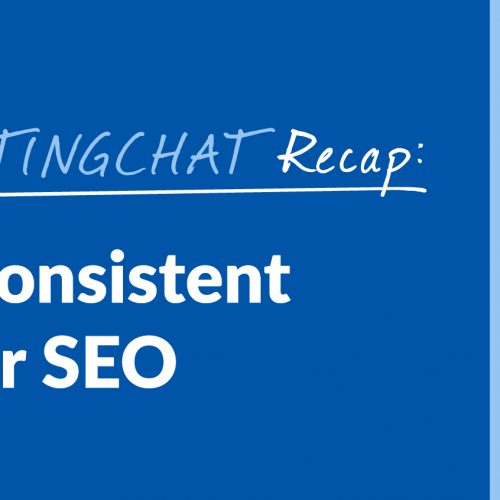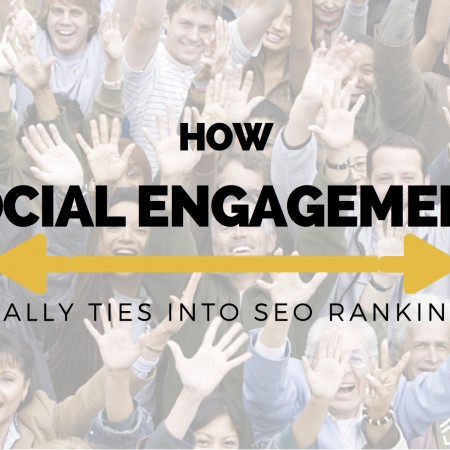#ContentWritingChat Recap: Curating Consistent Content for SEO with Danielle Tate
As online content creators, there’s no denying that SEO is essential. It’s not enough to just write amazing content for your blog, but you have to optimize it as well if you want search engines (and potential readers) to discover it. To help you step up your skills and create content for SEO, you’ll want to dive into the recap of our latest #ContentWritingChat where we talked all about it! #ContentWritingChat Recap: Curating Consistent Content for SEO Join us for #ContentWritingChat on Tuesday, May 9th at 10 AM Central Time with @Elegant_Entre! pic.twitter.com/rdvWR9nxP0 — Express Writers (@ExpWriters) May 2, 2017 Our guest host for this week’s chat was Danielle Tate of Elegant Entrepreneur. Danielle is a CEO, best-selling author, and a speaker. Q1: When it comes to publishing content consistently, where do you find inspiration to write? There’s no denying that sometimes it can be hard to come up with fresh ideas for your content. In order to keep those creative juices flowing, you need to seek a little inspiration. We asked our chat participants where they find inspiration for their writing and here’s what some of them had to say: A1a: I always look for news hooks that correlate with my post topic. Tying in headlines creates interest. #ContentWritingChat pic.twitter.com/p1t9SETgFA — Danielle Tate (@Elegant_Entre) May 9, 2017 A1b: Also, any customer question your company or blog receives is a topic for a post. It’s info your readers want #ContentWritingChat — Danielle Tate (@Elegant_Entre) May 9, 2017 For Danielle, she likes to look for news hooks that correlate to the topics she wants to write about. She also turns to customer questions, as they can make great blog content. This is a good reason to pay close attention to feedback your audience gives you and make note of any commonly asked questions. A1: Find inspiration from your audience! They can give you great ideas based on their questions. #contentwritingchat — Netvantage Marketing (@netvantage) May 9, 2017 It looks like Danielle isn’t the only one turning to customers to find content ideas. The team over at Netvantage Marketing uses this strategy as well. A1: Our customers. What questions are they asking? What are they talking about? #ContentWritingChat pic.twitter.com/PLCOaDqhWC — Kristi Kenyon (@kkenyon86) May 9, 2017 Kristi does the same. She finds out what questions customers are asking and what they’re talking about. This will lead you in the right direction when it comes to potential topic ideas. A1. I usually look at trends, listen for challenges and I have a pretty serious rainstorm board in my office. #ContentWritingChat — Bourbon & Honey (@BrittanyBrander) May 9, 2017 Brittany knows it’s a great idea to look at the trends in her industry. This gives you an idea of what’s hot at the moment and provides you with an opportunity to write about it. She suggests looking at trends and listening for challenges others are facing and then having a good brainstorming session. A1 Reading different articles is always a plus, there’s always new inspiration to writing/creating content. #ContentWritingChat pic.twitter.com/BIlyn3BfTd — Tony Stephan (@OmnipoTony) May 9, 2017 For Tony, he enjoys reading different articles for inspiration. There’s always something new to read, whether it’s something within your industry or not. You can always draw inspiration from what others are saying. @ExpWriters A1. I find inspiration to write content from twitter chats and also from successful people who are great with others #contentwritingchat — Cheval John (@chevd80) May 9, 2017 Cheval gets inspiration from Twitter chats. Chats are very informative and they provide you with the opportunity to connect with others and hear their questions. It can be a great place to find your next blog post idea. @ExpWriters A1: Frequently inspired by something someone said, what I see in nature when I #run, and a great photo/video. #ContentWritingChat — Jeremy Murphy (@jeremypmurphy) May 9, 2017 Jeremy finds writing inspiration from a variety of sources. He gets ideas from things he hears others talking about, what he sees in nature while he’s out on a run, and from great photos and videos. Q2: What advice do you have for writers maintaining a blog long-term? One thing that many on the outside looking in don’t realize is that blogging is actually hard work. You take on many roles as a blogger and it can sometimes feel overwhelming. So, how do you manage all of those tasks for the long haul? Check out this advice: A2: Don’t be afraid to widen your scope of topic so you have more to write about for the same audience #ContentWritingChat — Danielle Tate (@Elegant_Entre) May 9, 2017 Danielle says you shouldn’t be afraid to wide your scope of topic when it comes to the content you cover. If your audience would be interested and it’s still relevant overall, there’s no reason you can’t experiment with something new. A2: Write about something you genuinely enjoy, don’t let it turn into a chore, and find a schedule for yourself #contentwritingchat — Digital Natives Cast (@DgtlNativesCast) May 9, 2017 No matter what you choose to write about, it should be something that you genuinely enjoy. If you aren’t passionate about your chosen topic, writing will quickly become a chore. A2: Test, test, test to see what works, scale what does, stop doing what doesn’t. Metrics are our friend. #ContentWritingChat https://t.co/uprUW3fhnm — Jobs2Careers (@Jobs2Careers) May 9, 2017 Make sure you’re running tests to see what’s working for you and what’s not. This allows you to see what you should do more of and what needs to change. @writingchat A2a: Consistency. If you can’t keep it consistent then don’t waste your time. #ContentWritingChat — Our Fractured Minds (@FractureSaga) May 9, 2017 As Jeff said, you need to keep it consistent. If you’re going to start blogging, you need to develop a schedule and stick to it. A2: You need a content strategy and an editorial calendar. Focus on consistently creating valuable, quality content. #ContentWritingChat — Rachel (@redheadrachel) May 9, 2017 To make sure you’re … Read more





